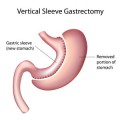“I tried that diet that everyone said was full proof. I even did a High Colonic while I dieted and  took Diet Pills. Nothing works for me. I guess I’m cursed to look and feel this way for the rest of my life.”
took Diet Pills. Nothing works for me. I guess I’m cursed to look and feel this way for the rest of my life.”
“Melissa don’t give up! Have you looked at any Weight Loss Surgery options? I know several people who seemed as hopeless as you. Now they’ve lost tons of weight and started a new life.”
“Maybe I will look into some Weight Loss Surgery options. Thanks Vicki.”
Are you like Melissa, a shell of a human who has virtually given up? If so, then you might want to keep reading.
What Do I Mean By Weight Loss Surgery Options?
There are several types of Bariatric Surgery Options that one can undergo. There are 4 basic groups in Weight Loss Surgery Procedures:
Gastric Bypass Surgery
This procedure reduces the size of the stomach by creating a small pouch with sutures and stitches, and then connects that pouch to the small intestines. It is fairly common; in 2005 over 140,000 of these surgeries were done. It can be done laparoscopically (small, less invasive incisions) or through an open incision.
Gastric Lap-Band Surgery
Here the surgeon will laparoscopically apply a small silicone ring (Band) around the upper part of the stomach which creates a smaller area for nutrient absorption and weight loss ensues. It is one of the most popular surgeries being used today and it is fairly safe.
Warning the following video shows graphic scenes of a Gastric Lap-Band Surgery.
Gastric Sleeve Surgery
This surgery is more serious as it requires an open incision and is permanent without the possibility for reversal. The surgeon will actually remove about 85% of the stomach and sew it together so that it looks tubular or “sleeve-like”. It is then sown to the small intestines.
Biliopancreatic Diversion Surgery
In this complicated and less frequently performed surgery, a large part of the stomach is resected (cut out.) Then the surgeon will bypass the duodenum and jejunum (upper part of the small intestine) and connect the pouch to the lower small intestine. It is good in that, there are much less dietary restrictions with this surgery, but can have more surgical complications.
 These are the four main types of Weight Loss Surgery Options. If you decide to have surgery, you’ll have to consult with your physician, who will refer you to a Bariatric Surgeon. Together you and your surgeon will decide which option is right for you.
These are the four main types of Weight Loss Surgery Options. If you decide to have surgery, you’ll have to consult with your physician, who will refer you to a Bariatric Surgeon. Together you and your surgeon will decide which option is right for you.
What Are Some Concerns When Using Weight Loss Surgery Options?
There are several things to consider BEFROE you have Bariatric Surgery. You have to realize that this is not a “No Muss, No Fuss” weight loss miracle. This is going to require commitment and hard work for an extended period of time. Not to mention a complete life style change.
Medical Concerns
As with any surgery there are inherent risks, and these will be thoughroughly explained to you by your caregiver. But also, the particulars of the Weight Loss Surgery Options need to be discussed. Most complications are rare and/or minor, but some of the larger concerns are:
- Hemorrhaging (internal bleeding)
- Incision Infection
- Hernia (filling of internal membrane with blood or tissue)
- Blood Clotting in Leg or Pelvis
- Anastomotic concerns (Leakage, Stricture, Ulceration)
- Dumping Syndrome
- Post-Operative Depression
Depression is rarely discussed with pre-operative patients, but as almost 70% of patients say they deal with it, perhaps it should be a major consideration.
Lifestyle Change Concerns
Weight Loss Surgery Options often lead to dramatic weight loss, but not without a cost. Depression is listed above as a medical concern, because often a patient’s post-operative life is drastically different from their pre-operative. Food can no longer be “used” to feel better. Exercise and activity will be required in order to facilitate the weight loss. Be prepared to change everything about your lifestyle and you’ll do fine.
Warning: The following video contains a discussion about sexual changes in WLS patients lives.
Cost Concerns
These surgeries are not cheap. The average cost runs anywhere from $17,000 – $35,000 depending on which type of procedure you choose, and any cosmetic surgery additions you have. The cost of Weight Loss Surgery Options usually includes:
- Pre-op Labs
- Hospital Facility
- X-ray Fees
- Operating Room
- Anesthesia
- Surgeon’s Fee
AS you can see this is a big commitment and something you can’t “half do”. Find out every aspect of the Weight Loss Surgery Options before you make such a huge financial expenditure.
Are the Weight Loss Surgery Options Worth the Risks?
I say yes. Now obviously, that’s a decision each person will have to make for themselves. Do your homework, find out all the Weight Loss Surgery Information you need to, see if you have Weight Loss Surgery Insurance. and make a decision. If you have the means, and a burning desire to change your life with Weight Loss Surgery Options, then take a chance.

Match the Surgeries to their appropriate descriptions below, and check yourself with the answers at the bottom of the page!
_____1. Gastric Sleeve Surgery
_____2. Biliopancreatic Diversion Surgery
_____3. Gastric Lap-Band Surgery
_____4. Gastric Bypass Surgery
a. This procedure reduces the size of the stomach by creating a small pouch with sutures and stitches, and then connects that pouch to the small intestines. It is fairly common; in 2005 over 140,000 of these surgeries were done. It can be done laparoscopically (small, less invasive incisions) or through an open incision.
b. Here the surgeon will laparoscopically apply a small silicone ring (Band) around the upper part of the stomach which creates a smaller area for nutrient absorption and weight loss ensues. It is one of the most popular surgeries being used today and it is fairly safe.
c. This surgery is more serious as it requires an open incision and is permanent without the possibility for reversal. The surgeon will actually remove about 85% of the stomach and sew it together so that it looks tubular or “sleeve-like”. It is then sown to the small intestines.
d. In this complicated and less frequently performed surgery, a large part of the stomach is resected (cut out.) Then the surgeon will bypass the duodenum and jejunum (upper part of the small intestine) and connect the pouch to the lower small intestine. It is good in that, there are much less dietary restrictions with this surgery, but can have more surgical complications.

Natural Hypnosis: Gastric Band Hypnosis
Brennan Smith is a Master Hypnotist who has put his talents to good use in a most beneficial way. Smith has created a Gastric Bypass Surgery without the:
• Costs
• Worry
He’s done this by creating the “experience” of a Gastric Bypass Surgery that he can transfer to your mind; a Virtual Gastric Bypass through hypnosis. Through a series of High Quality audio recordings your mind will be fooled into Pre, During, and Post-Operative experiences.
Sound Quality
Recorded in 3D sound with a specially designed microphone, you will be immersed in the surgery from start to finish. It does require headphones to get the impression of the surgical sounds surrounding you, as Smith takes you through the entire procedure form start to finish.
The Process
With 7 audio sessions, it’s important to listen to them in order. The first 2 will need to be listened to several times before the actual surgery session. Likewise sessions 4-7 can be repeated to fortify your resolve and course of action.
Why Use This System?
• Safety
• Price
Are these two things important to you? Gastric Bypass Surgery comes in at an average of $22,000. Natural Hypnosis: Gastric Band Hypnosis is a must have for those who are both serious and desperate to lose weight, but don’t want to face the risk and cost of surgery.
This is the ultimate surgical substitute for losing weight.
Weight Loss Surgery for DUMMIES
Written by an MD, a previous Bariatric Surgery patient, and a renowned Weight Loss Expert, Weight Loss Surgery for DUMMIES is an exceptional help guide for anyone exploring the possibility of Weight Loss Surgery.
• Barbara Thompson (former Gastric Bypass patient)
• Brian K. Davidson (weight loss expert and advocate)
What the authors have done is address every aspect of the Weight Loss Surgery Experience; from the very moment the thought of surgery enters your mind, till you have journeyed to the point of significant weight loss. Kurian, Thompson, and Davidson take the potential surgery candidate through such important aspects as:
• Am I a Good Candidate?
• Why Do I Want/Need to Lose Weight?
• Have I Tried Other Weight Loss Methods?
• What are the Various Surgical Methods, and Which is Right for Me?
• What to Expect Before, During, and After?
You can see how invaluable such a book like this could be. If you are considering Weight Loss Surgery in the slightest, read this book. Many people don’t do this procedure because they are afraid; they don’t know what to expect. Well, knowledge kills fear, and this book is a Weight Loss Fear killer.
Answers: 1)c, 2) d, 3) b, 4) a








April 4, 2013 at 12:45 pm
That comic with the stomach lamps is gross. lol Seriously though, there are so many dangers associated with this type of invasive surgery I can’t imagine it’s an easy decision to make.
March 23, 2013 at 8:12 pm
Bariatric surgery is so expensive, but thanks for covering what all you have to pay for. It’s nice to have information about all the different types without it being a come-on for a doctor’s office or something. Thanks.
March 19, 2013 at 1:20 pm
I’m glad you put out the psychological issues when it comes to food and overeating. My friend who had gastric bypass struggles with the urge to eat for comfort still. Luckily her procedure included counseling and lifestyle help.
March 8, 2013 at 2:46 am
Great article! Weight loss surgery may not be for everyone, and for sure is not an option I would consider. However, for habitual over eaters who, like any addict, can not beat the craving it’s probably the only solution. It’s much like the alcoholic who has to take Antabuse to become violently ill when consuming alcohol. Radical, but when all else fails you turn to the least attractive of options to get the desired result.